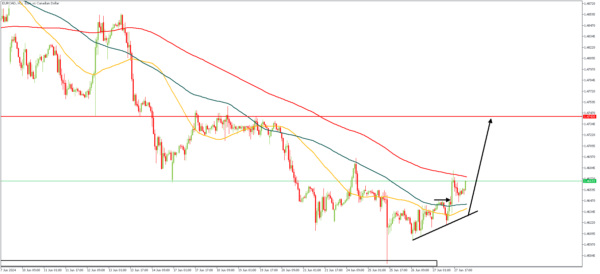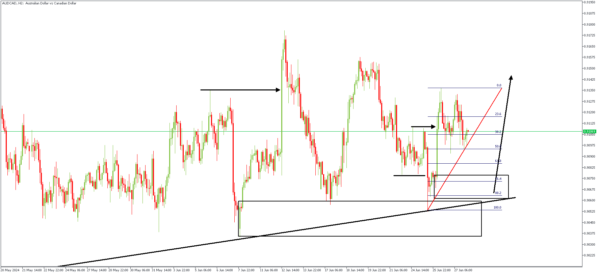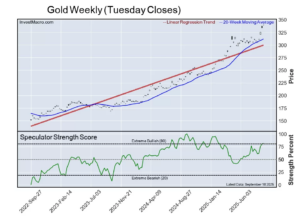The Canadian Dollar (CAD) saw volatile movement on Thursday due to mixed US economic data and a lack of domestic updates. With Canada absent from the economic calendar until Friday’s GDP report, the CAD was influenced by US figures. Markets are now focused on the upcoming US Personal Consumption Expenditure (PCE) Price Index, a critical inflation measure for the Federal Reserve, set for release on Friday. This US inflation data is expected to overshadow the Canadian GDP figures in terms of market impact. Traders are anticipating significant market reactions to the US price growth data at the end of the trading week.
EURCAD – H1 Timeframe
I know you’re tempted to interpret the 1-hour EURCAD chart above as a bearish trend, however, let’s break it down critically before you do. Here, we see the moving averages in a bearish array, but you see the wick-ed reaction from the Daily timeframe demand zone at the bottom of the chart tells a different story. And as a result of that rejection from the demand zone, we’ve seen a bullish break of structure and a trendline support created. Should the trendline support hold when tested, the bullish sentiment would be explicitly confirmed.
Analyst’s Expectations:
- Direction: Bullish
- Target: 1.47430
- Invalidation: 1.46082

AUDCAD – H2 Timeframe
The first horizontal arrow from the left of the attached AUDCAD 2-hour chart marks the bullish break of structure. The impulse originated from the highlighted demand zone, which has been retested twice already. The most recent rejection formed a SBR (Sweep-Break-Retest) pattern, which means that we’re simply now waiting for price to retest the demand zone at the 76% region of the Fibonacci retracement tool in order to find confirmation for our bullish sentiment.
Analyst’s Expectations:
- Direction: Bullish
- Target: 0.91415
- Invalidation: 0.90493










